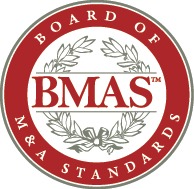Bypassing due diligence proves a costly mistake.
By Bill Blandford, Member of the Board of M&A Standards

We learned the hard way how important due diligence really is!
The Buyer, the management of one product line, purchased a very small-carve out from a firm in China. Because it was so small, the deal didn’t go through the Corporate Due Diligence office. The first time we got together to discuss the deal, no Seller representatives were included. I asked why, and the response was, “They only speak Chinese.” I asked how we would integrate them, and the managers said, “Teach them English.”
As the company moved forward with the deal, it became clear that language would be a significant barrier to any kind of integration. We quickly learned that all the Sellers spoke only Chinese. So did their customers, suppliers and third-party vendors. All business, design, manufacturing documentation and product literature were available IN CHINESE ONLY!
Given that the deal was so small, we decided to go back to the Sellers and renegotiate to get a copy of all the software they used to design and process the business, since it was developed by the company without any commercially available tools. This represented a complete shift in our integration strategy, from full integration to a standalone. As a result, the effort to incorporate the product into our portfolio was much more costly and time consuming than we’d originally anticipated: for such a small purchase, it took almost two years before we could realize even some of the synergies of the deal.
This situation would probably have been easily avoided if the Buyer had followed the usual procedure of pushing the deal through the Corporate Due Diligence office. The language barrier would have been immediately apparent, and we could have evaluated multiple options for addressing that challenge, whether it be walking away from the deal, building a Chinese-proficient deal team, or simply structuring the deal as a standalone acquisition from the beginning.
Moreover, the Buyer’s directive to “Teach them English” could have set the tone for a very adversarial relationship with the Seller. This heavy-handed approach implies that the Buyer is unwilling to compromise or cooperate with the Seller, which is never a great first impression when you’re undertaking an M&A deal.
 William Blandford is the Managing Director of Blandford Associates, aimed at Practical IT M&A Due Diligence and Integration. He has participated in over 50 transactions with two major high-tech companies. He successfully integrated more than 30 acquisitions and led the divestiture of 20 businesses. William has extensive experience in acquisitions, divestitures, spin-offs, and internal reorganizations across the globe with a primary focus on IT. William is also a member of the Board of M&A Standards.
William Blandford is the Managing Director of Blandford Associates, aimed at Practical IT M&A Due Diligence and Integration. He has participated in over 50 transactions with two major high-tech companies. He successfully integrated more than 30 acquisitions and led the divestiture of 20 businesses. William has extensive experience in acquisitions, divestitures, spin-offs, and internal reorganizations across the globe with a primary focus on IT. William is also a member of the Board of M&A Standards.
To learn how your M&A team can avoid due diligence horror stories like this one, please join us for The Art of M&A Due Diligence March 27-29 in Orlando. In this unique workshop environment, the M&A Leadership Council brings together experts from leading firms like BDO and M&A Partners to share their expertise, insights and best practices.
